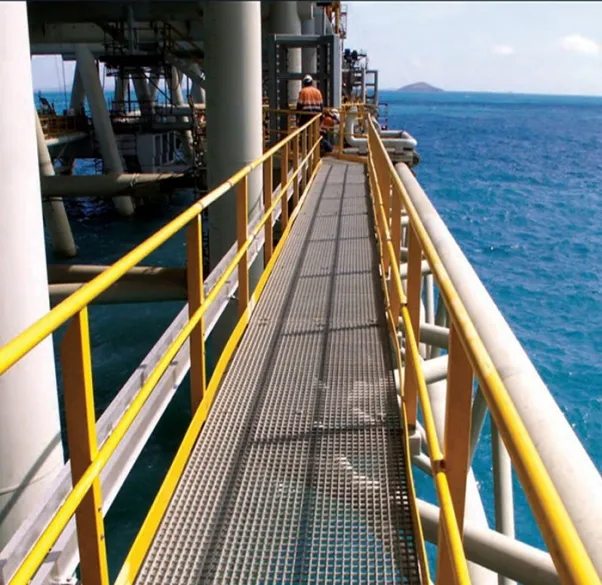- Industrial zone, South of Anping Town, Hengshui, Hebei, China.
- sales@hfpetromesh.com
- +86-18931809706
serrated steel flat bar
The Versatility and Applications of Serrated Steel Flat Bars
Serrated steel flat bars are a unique and highly functional material used across various industries, owing to their distinct surface features and robust properties. These flat bars are characterized by a series of serrations or grooves along their surface, which enhance their grip and stability when installed in a variety of structural applications. This article explores the advantages, manufacturing process, and common uses of serrated steel flat bars.
Advantages of Serrated Steel Flat Bars
One of the primary benefits of serrated steel flat bars is their improved traction. The serrated surface creates friction, making them ideal for applications requiring slip resistance. This feature is particularly beneficial in environments where safety is paramount, such as walkways, stairs, and industrial flooring. By minimizing the risk of slips and falls, serrated flat bars contribute to a safer workplace.
Moreover, serrated steel flat bars possess excellent mechanical properties, including high tensile strength and durability. Composed typically of high-grade steel, these bars can withstand significant loads and pressures, making them suitable for heavy-duty applications. Their resistance to wear and tear also ensures longevity, which reduces maintenance costs over time.
Manufacturing Process
serrated steel flat bar

The manufacturing of serrated steel flat bars involves several steps, ensuring precision and quality. Initially, flat steel bars are produced through processes such as hot rolling or cold rolling, where the steel is shaped into flat sections. Once the base flat bar is prepared, the serration process begins. This is typically achieved through a tooling method that creates uniform grooves along the length of the bar. The depth, width, and spacing of the serrations can vary based on the specific requirements for the application.
After the serration process, the bars undergo finishing treatments, including surface polishing or galvanization. These treatments enhance both the aesthetic appeal and the corrosion resistance of the flat bars, ensuring they can withstand various environmental conditions.
Common Applications
Serrated steel flat bars have a wide range of applications in diverse sectors. In construction, they are often used for fabricating stair treads, platforms, and walkways, providing enhanced safety and stability for pedestrians. In the manufacturing sector, serrated flat bars serve as bases for machinery and equipment, where their grip helps reduce vibrations and improves overall functionality.
Furthermore, these bars find extensive use in the agricultural industry, particularly in creating functional and safe access ramps for livestock, as well as in various equipment designs. The automotive sector also utilizes serrated flat bars for building components that require strong friction surfaces, enhancing vehicle safety and performance.
In conclusion, serrated steel flat bars are an invaluable material that combines safety, strength, and versatility. Their unique surface characteristics make them ideal for applications where slip resistance and durability are critical. As industries continue to innovate, the usage of serrated steel flat bars is likely to expand further, reinforcing their place as a fundamental component in modern engineering and construction.
-
The Power of Pyramid Shaker Screen - A 3-Dimensional SolutionNewsOct.24,2024
-
Exploring the Versatility and Durability of Steel GratingNewsOct.24,2024
-
Revolutionizing Drilling Efficiency with Steel Frame Shaker Screens for Mud Shale ShakersNewsOct.24,2024
-
Potential of Shale Shaker ScreensNewsOct.24,2024
-
Offshore Pipeline Counterweight Welded Mesh - Reinforced Mesh in Marine EngineeringNewsOct.24,2024
-
Revolutionizing Offshore Pipeline Stability with Concrete Weight Coating MeshNewsOct.24,2024
